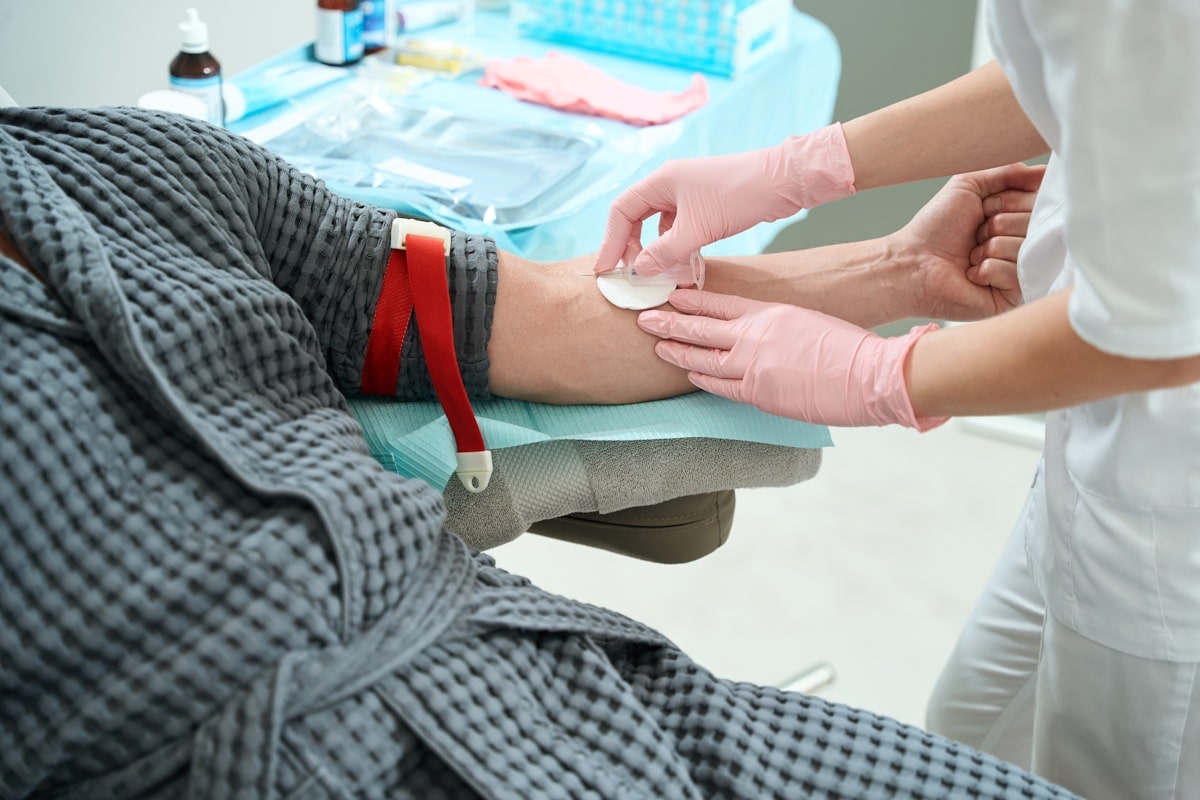In today’s fast-paced world, it’s not uncommon for men to prioritize the maintenance of their possessions over their well-being. While cars may come with owner’s manuals dictating scheduled service, the same level of guidance is often lacking regarding personal health. However, with a proactive approach and attention to key health indicators, men can confidently and precisely navigate the journey toward optimal health. Join us as we delve into WebMD’s expert recommendations for men’s health maintenance and checkup protocols.
Understanding Cholesterol Levels
Cardiovascular disease stands as the foremost health concern for men, with heart attacks and strokes claiming a significant toll. High cholesterol is a prominent risk factor, largely preventable through routine monitoring and appropriate interventions. The American Heart Association advocates for regular cholesterol screenings commencing at age 20, with subsequent assessments every 4 to 6 years or as necessitated by individual risk profiles.
Managing Blood Pressure
The insidious nature of hypertension underscores the importance of vigilant blood pressure management. Often devoid of overt symptoms until irreversible damage ensues, high blood pressure poses a significant threat to cardiovascular health. Embracing lifestyle modifications and pharmacological interventions, when indicated, form the cornerstone of adequate blood pressure control.
Nutritional Considerations
The adage “you are what you eat” rings especially true in preventive health. Eating fruits and vegetables helps fight chronic diseases like cancer, cardiovascular disease, and diabetes.” Aligning dietary choices with established guidelines fosters weight management and cultivates a foundation of robust health.
Weight Management Strategies
Addressing the burgeoning epidemic of obesity necessitates a multifaceted approach rooted in sustainable lifestyle modifications. Through conscientious efforts to increase physical activity and adopt dietary practices conducive to weight loss, individuals can avoid the development of chronic diseases and enhance overall well-being.
Metabolic Health Monitoring
Monitoring regularly blood sugar levels is a vital component of preventive healthcare. It facilitates early detection and intervention in metabolic disorders. Timely identification of aberrant values allows preemptive measures to avert the onset of diabetes and its attendant complications.
Colorectal Cancer Screening
In the battle against cancer, early detection emerges as a formidable ally. Screening protocols for colorectal cancer offer a means of detecting and treating malignancies in their incipient stages, thereby optimizing prospects for cure and long-term survival.
Hepatitis C Screening
Vigilance against infectious pathogens extends to screening for hepatitis C, a viral illness capable of precipitating chronic liver disease and hepatocellular carcinoma. Timely identification of the virus permits initiation of targeted interventions aimed at curtailing disease progression and averting adverse outcomes.
Prostate Cancer Screening
Navigating the nuances of prostate cancer screening mandates informed discussions between patients and healthcare providers. Understanding screening modalities’ benefits, risks, and limitations empower men to make educated decisions regarding their health trajectory.
Immunization Protocols
Immunization is a cornerstone of preventive healthcare, safeguarding against infectious threats that imperil individual and public health. Adherence to recommended vaccination schedules confers protection against influenza, shingles, pneumonia, and other infectious diseases, mitigating morbidity and mortality.
Establishing a Rapport with Healthcare Providers
Central to the preventive healthcare paradigm is the establishment of a collaborative partnership between men and their healthcare providers. Regular checkups afford the opportunity for comprehensive health assessments, enabling early identification of potential issues and timely interventions to preserve well-being.
In conclusion
Prioritizing routine health maintenance is an investment in longevity and quality of life. By embracing proactive strategies and leveraging available resources, men can embark on a trajectory of sustained health and vitality. Join us on this journey towards optimal well-being.
Dr. David Samadi is the Director of Men’s Health and Urologic Oncology at St. Francis Hospital in Long Island. He’s a renowned and highly successful board certified Urologic Oncologist Expert and Robotic Surgeon in New York City, regarded as one of the leading prostate surgeons in the U.S., with a vast expertise in prostate cancer treatment and Robotic-Assisted Laparoscopic Prostatectomy. Dr. Samadi is a medical contributor to NewsMax TV and is also the author of The Ultimate MANual, Dr. Samadi’s Guide to Men’s Health and Wellness, available online both on Amazon and Barnes & Noble. Visit Dr. Samadi’s websites at robotic oncology and prostate cancer 911.


